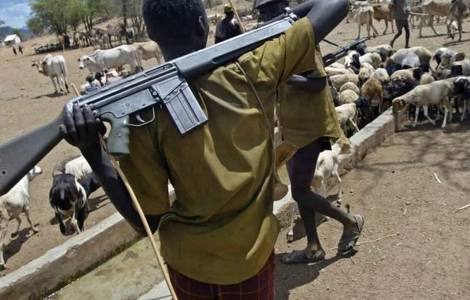
Rome (Agenzia Fides) - Deeply rooted economic inequalities and not ethnic tensions are the causes of violence and instability in the Sahel. This is what the study, entitled "Steps Towards Peace" recently released by Catholic Relief Services (CRS) and sent to Agenzia Fides states. "Our report underscores the fact that while the crisis may be painted by some as religious or ethnic in nature, it’s actually a result of perceived inequality and a growing discontent with government", says Jennifer Overton, CRS’ West Africa regional director . "Those living in the Sahel deserve good governance, security, access to livelihoods and improved living conditions ", she added.
The study examined the root causes and impacts of the spiraling conflict across three countries – Mali, Burkina Faso and Niger , where the insecurity caused by the actions of various armed groups "is rapidly turning into the largest humanitarian crisis in the world".
The humanitarian needs across the Sahel are staggering, with upward of 1.8 million people displaced from their homes by the violence. According to the United Nations, more than 20 million people, half of them children, are in need of life-saving assistance and protection – the highest number ever recorded in the region.
According to the analysis, jihadists and organized crime groups are exploiting the poor and unemployed, small communal grievances and mistrust of national political leadership to recruit fighters to carry out acts of violence. Religious extremism does not appear to be a driving factor for the unrest. In fact, many of those surveyed openly stand against religious extremism. "Whether one is a Muslim, Christian, Catholic, Protestant or of a traditional African belief, terrorism has spared no one and causes everyone to lose their livelihoods, their home, activities, life and freedom for those who have been taken hostage", said His Exc. Mgr. Laurent Birfuoré Dabiré, President of the Burkina-Niger Episcopal Conference.
Community and religious leaders, both Muslim and Christian , have stood up for unity and peaceful resistance and as a result are the targets of assassinations in attempts to undermine their influence.
"In West Africa, our brothers and our sisters are being chased, slaughtered and kidnapped. Our homes and our farms have been burned. Women and children have been mercilessly targeted. Others are being enlisted by various ideological leaders. This has forced people to leave, abandon their land for oftentimes harsh landscapes", said Théodore Togo, secretary-general of OCADES/Caritas Mali.
For the report, CRS conducted interviews and surveys in the region, including farmers, herders, local militias and religious and traditional leaders. The analysis was conducted in April 2020 and included those living in the epicenter of the violence, in the Liptako–Gourma area, which straddles Burkina Faso, Mali and Niger. CRS, which has worked in the region for more than six decades, calls for an increased investment in peacebuilding, and for more involvement of women, youth and local leaders as part of national and regional plans to resolve the crisis. (L.M.) (Agenzia Fides, 6/10/2020)